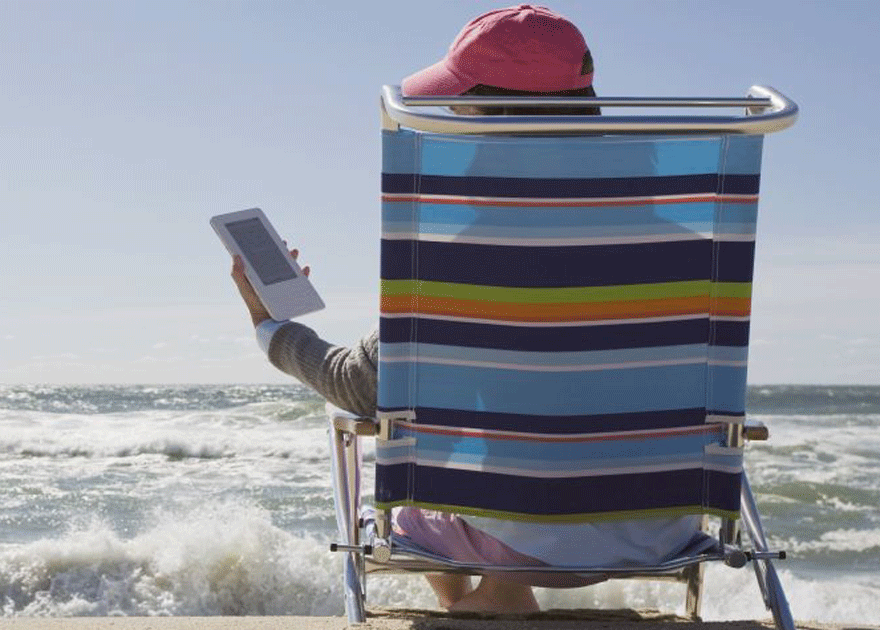Cleared for take-off: Europe allows use of e-readers on planes from gate to gate
Personal electronic devices in 'flight mode' will be allowed in all phases of journey - but mobile phone communication with ground stations remains banned

Doors to automatic, engage Kindle: weeks after America's Federal Aviation Administration conceded that a ban on the use of electronic devices at lower flight levels was unnecessary, European safety regulators have followed suit.
For the first time, personal electronic devices (PEDs) such as e-readers, MP3 players and tablet computers will be allowed in all phases of the journey, from gate to gate, so long as any transmitter is disabled ("flight mode"). But mobile phone communication with ground stations remains banned.
At present, all personal electronics devices must be turned off at altitudes below 10,000 feet, ie during taxiing, take-off and landing. The Civil Aviation Authority has previously said: "Allowing some electronic devices to be used during take-off and landing, while prohibiting others, could lead to confusion amongst passengers. Therefore, for the immediate future all PEDs should be switched off during take-off and landing."
But the European Aviation Safety Agency (EASA) has updated its guidance on the use of portable electronic devices, including smartphones, tablets and e-readers.
The EU Transport Commissioner, Siim Kallas, said: "Today we are taking a first step to safely expand the use of in-flight electronics during taxiing, take-off and landing. Next we want to look at how to connect to the network while on board."
The old rules currently remain in force, with each airline obliged to submit changes in operational procedures to their national regulator. In the case of the UK this is the CAA.
A spokesman for British Airways said the airline "hopes to be in a position to announce a relaxation in the rules around the use of handheld electronic devices very soon". But other aviation sources suggested it may take a further year before the regulations are formally eased.
And that's not all - could wi-fi be next?
By Charlotte McDonald-Gibson in Brussels
The next step is a review into the safety of using phones for making calls and accessing wi-fi and bluetooth mid-flight. Mr Kallas has asked the EASA to speed up its review, and said he plans to issue new guidelines next year.
The EU's telecommunications arm last month approved the expansion of 3G and 4G services on board aeroplanes cruising above 3,000 metres, although only for the very few aircraft fitted with the technology to allow on board internet access. The EASA is now looking into allowing passengers to access their normal networks while in a plane, although the debate about calling in the air is likely to go beyond the safety issues, and into on-board etiquette.
“I have noticed that in the United States, cell phone use on one airline is restricted to silent operations — like texting and e-mail,” said Mr Kallas. “I like the sound of that. I think our journeys should be peaceful as well as safe.” But, he added, “that will be up to individual airlines to decide”.
Subscribe to Independent Premium to bookmark this article
Want to bookmark your favourite articles and stories to read or reference later? Start your Independent Premium subscription today.

Join our commenting forum
Join thought-provoking conversations, follow other Independent readers and see their replies